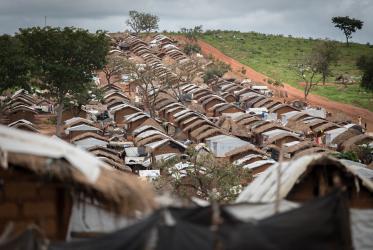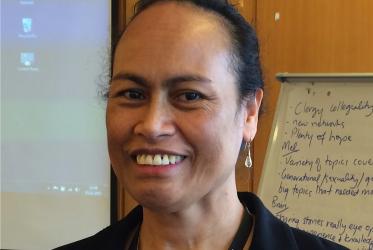Displaying 1 - 20 of 23
A faith-based, holistic approach to HIV and AIDS-care
13 March 2019
Faith and HIV treatment go hand in hand
06 March 2019
Turning mercy and compassion into action
04 March 2019
On the journey to HIV – bridging gaps, debunking myths
21 February 2019
Not just numbers, displaced people need to share their stories
01 February 2018
"I hit the ground running": Katalina Tahaafe-Williams
16 February 2016
Fleeing from – rather than to – a place
10 February 2016
WCC/UN conference calls for coordinated action on refugee crisis
20 January 2016
Thomas de Maizière: On the frontlines of refugee integration
20 January 2016
Chantal Scheidecker, ecumenical migration activist, dies at 82
07 December 2015
Church challenge: Welcoming "strangers" in a climate of fear
18 November 2015









